Congratulations, New Students! (2021 Entrance Ceremony)
April 5, 2021
On Monday the 5th of April, the 2021 Academic Year Entrance Ceremony was held. Due to the coronavirus pandemic, this year’s entrance ceremony was held separately in the Prometheus Hall and Research and Lecture Building’s classroom.
TUFS welcomed 352 new students (including 9 transfer students) to the School of Language and Culture Studies, 357 (including 11 transfer students) to the School of International and Area Studies, 80 to the School of Japan Studies, 157 into the Master’s and Doctoral Programs of the Graduate School of Global Studies – a grand total of 946 new students.
In addition, Welcome Ceremony for the new students of 2020 was held at Agora Global Prometheus Hall.
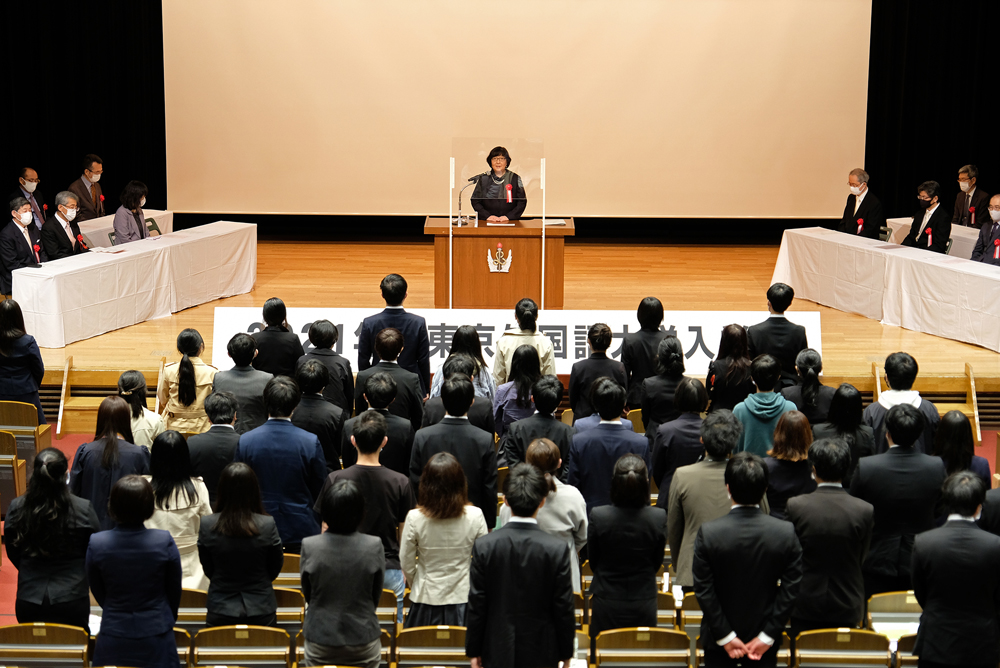
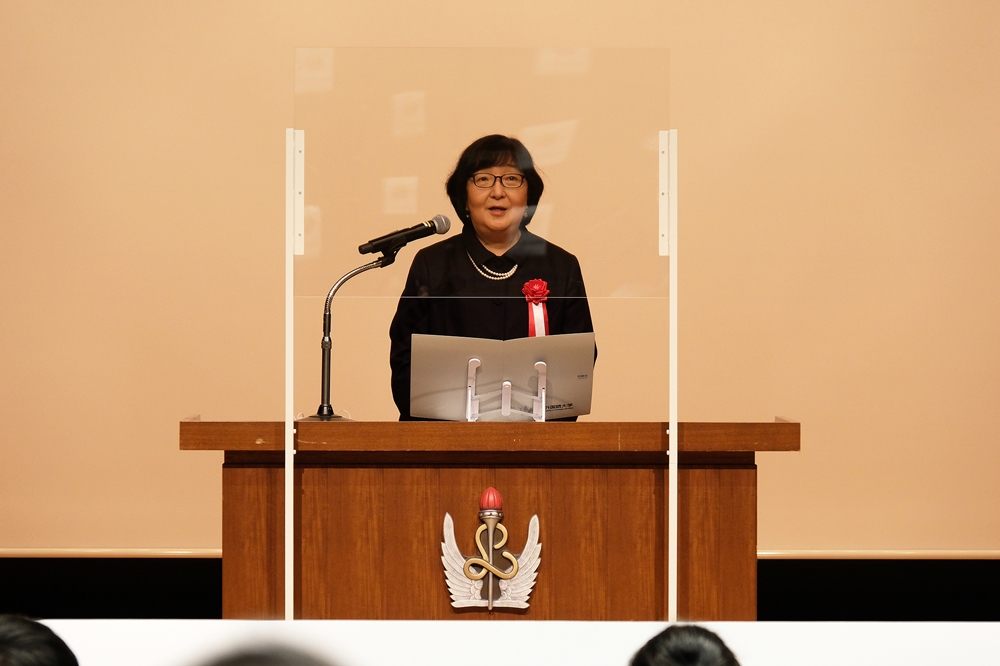
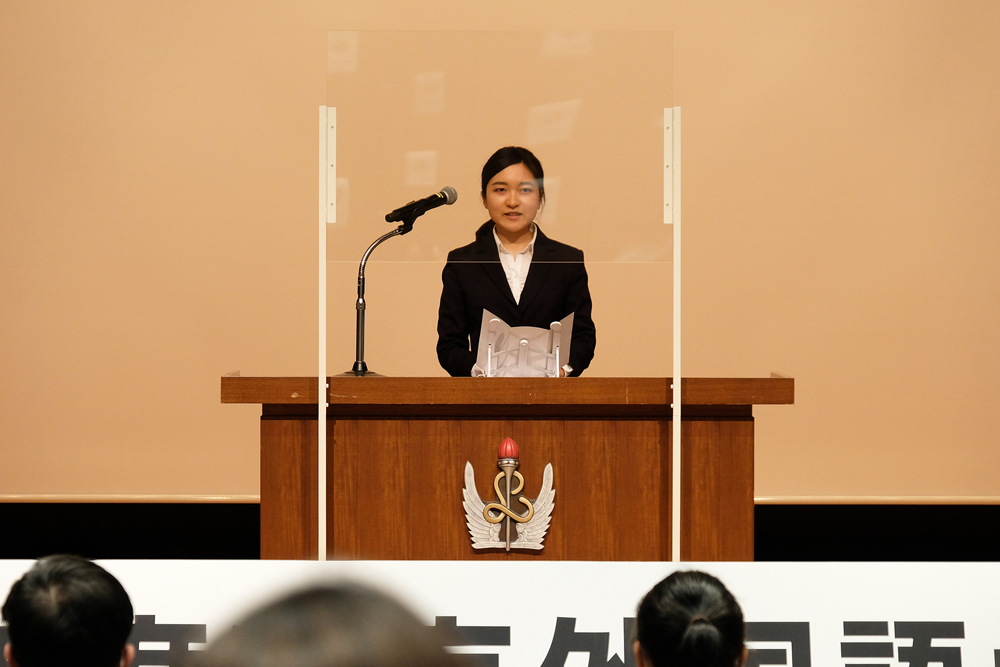
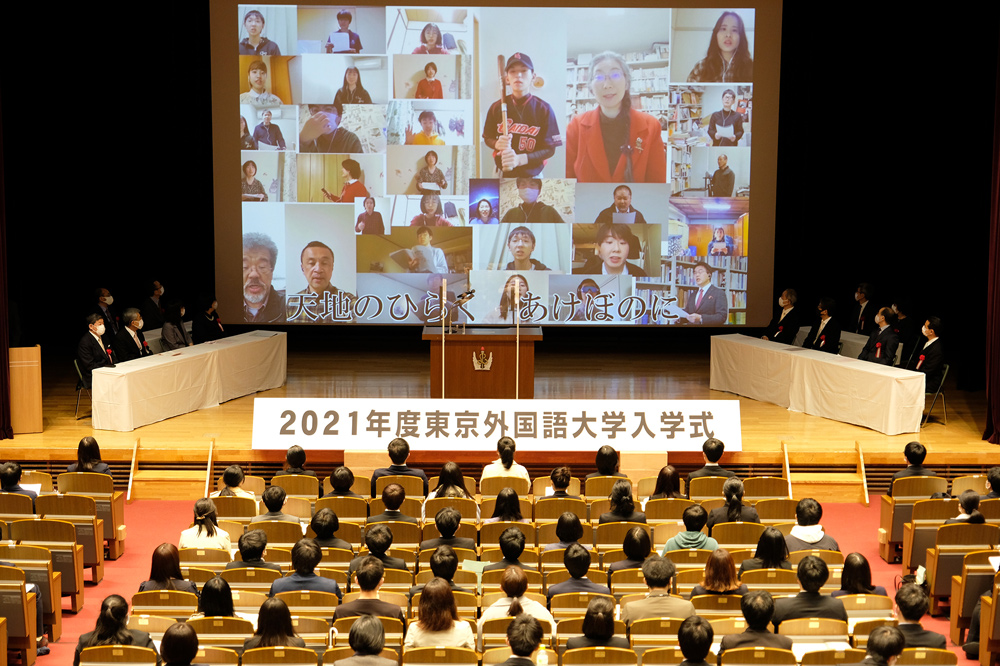
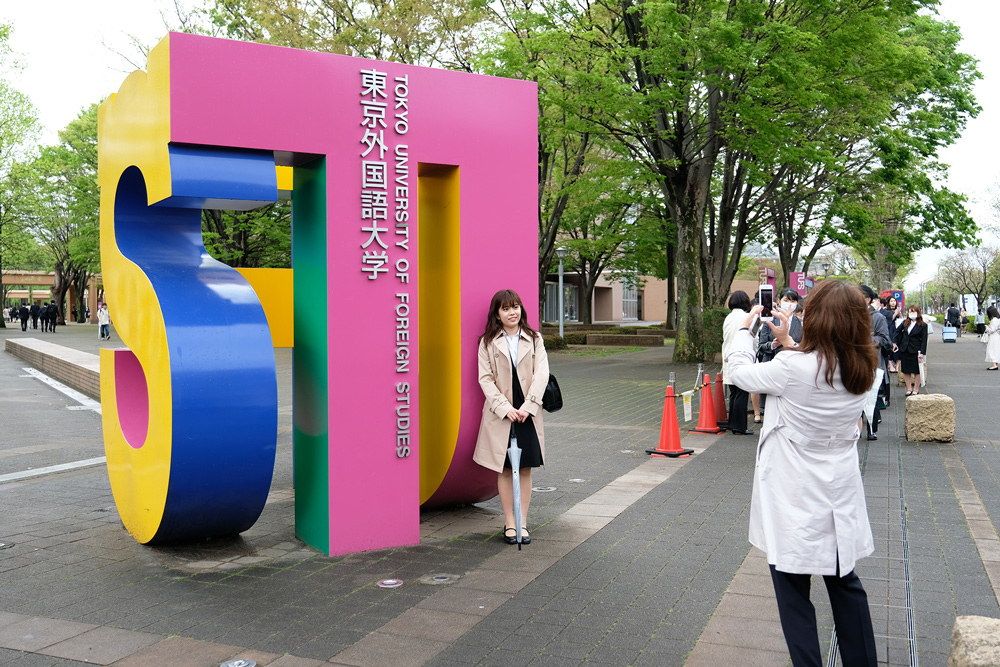
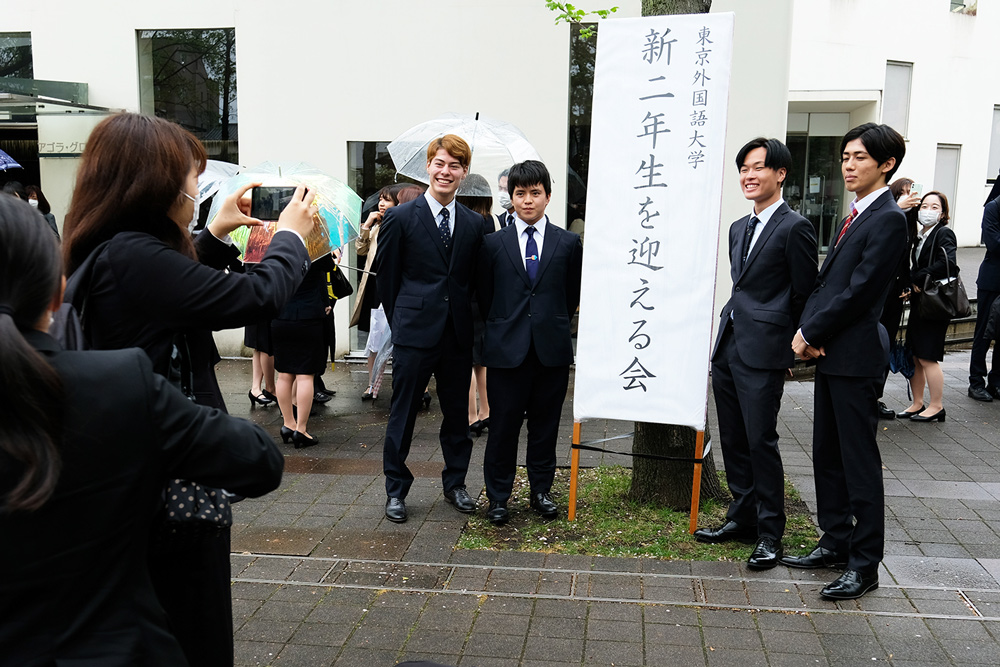
2021 Entry Ceremonial Address from the President
Dear new incoming undergraduate and graduate students, Congratulations and welcome to TUFS!
It is my great pleasure to be able to hold this ceremony today on our campus even though we are still in the midst of the COVID-19 pandemic. Many of you are attending this ceremony remotely from different rooms. I really wish I could see you smiling and speak to you in person. Yet, all of the faculty and staff members at TUFS are very glad that we could gather on campus to celebrate this good day.
This past year our lives were disrupted greatly by the COVID-19 pandemic. That must have been especially true for those of you who had to prepare for the entrance exams under the pandemic. I would like to express my heartfelt respect to all of you for overcoming these difficulties, successfully passing the entrance examination, and becoming a member of our university community.
The Tokyo University of Foreign Studies, which you have joined today, is a university that studies and tries to understand languages and cultures of the world and also politics and economics of various regions of the world from perspectives of the local people. In other words, our research and education take the diversity of the world as its foundation.
You may think that the world is becoming more homogenized through globalization. It is true that we live in an age where e-mail and social networking services are available all over the world, and that the same chain stores can be found everywhere. All of these are indeed making the world a rather boring place. However, it is precisely because the world is becoming closer together that differences in language and culture are becoming more apparent, and problems that were once buried in different parts of the world are now interacting and influencing each other. Globalization is drawing disparate things to a single place, and in fact, it is playing a role in highlighting the diversity of the world.
We can see this state of the world in the COVID-19 pandemic. In the pre-globalization era, when there were relatively limited mobility and interaction, the epidemic could have ended as a local disease somewhere in the world. However, it can now spread all over the world in the blink of an eye. The plague in the Middle Ages and the Spanish flu after World War I also spread globally, but they took a long time to spread. The global spread of COVID-19, in contrast, took only a little more than a month. A rapidly growing number of mutated viruses are also spreading around the world very quickly, and this douse hopes for rapid containment of the pandemic.
In the face of the outbreak of COVID-19, countries tried to constrain contacts by closing boarders and shutting off international movement of people closing boarders. Japan was one of such countries. Even within the country, movement across prefectural boundaries became a problem. This came to highlight the local administrative units like prefectures. Why, then, were these prefectural boundaries used as the basis for restricting movement?
Needless to say, it is because countries and other administrative units function as a domain of government of a single system. The current control measures are based on the premise that each of us is a citizen of some country or prefecture, and that national systems and laws, as well as prefectural ordinances and instructions, function within the scope of such units.
In the midst of globalization, the diversity of the world had become prominent, but the COVID-19 pandemic seems to have created a strange retrogressive situation. This is because local political and administrative bodies such as a nation and a prefecture have come to the fore to ensure that the infection prevention system functions. Of course, the spread of an infectious disease must be prevented. For the whole last year we endured the difficulty days by giving up many ordinary things that we have taken for granted. One important thing we need to remember is that such units is much more diverse internally than is expected by the system.
We constantly hear reports from many parts of the world where support materials and measures are failing to reach the refugees and ethnic minorities. We see the same in Japan: much needed information and support are not reaching the hands of people without means and advantages. It is often pointed out that disparities are widening and differences are increasing. I think the source of the disparity lies in the fact that the people living in Japan have different backgrounds and are not uniform. There is probably a great amount of diversity among the people who are entering this university today, and some of you may have had painful experiences under the COVID-19 pandemic. Any kind of difference should not become a cause of pain for anyone. Even in this time of the pandemic, we need to protect the appreciation of diversity that had grown in the age of globalization. I believe that the world can change for the better if different agents and thinkings coexist and collaborate by overcoming potential conflicts and confrontations.
This is the very reason why we value diversity and try to attain deep understanding of what diversity is. The study of the world's languages, regions, and disciplines at TUFS all point to the profound respect for diversity.
I sincerely hope that the studies and experiences at TUFS will help you contribute to creation of a world that values diversity and is kind to everyone.
I wish you and your families good health, and my heartfelt congratulations to you.
April 5, 2021
Kayoko Hayashi, President
Tokyo University of Foreign Studies
